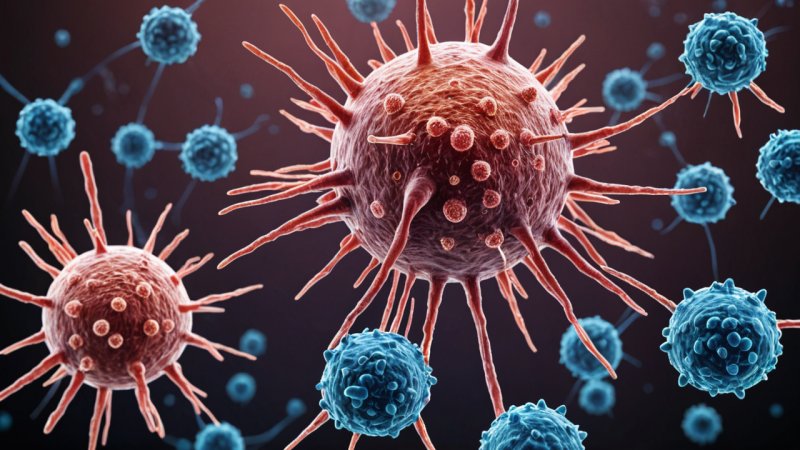Introduction
Cancer immunotherapy has emerged as a groundbreaking approach in the fight against cancer, utilizing the body's immune system to identify and destroy cancer cells. As research continues to evolve, several trends are shaping the future of this innovative treatment. In this article, we will explore the top five promising trends in cancer immunotherapy and their potential implications for patients and healthcare professionals alike.
1. Personalized Immunotherapy
Personalized immunotherapy tailors treatment based on an individual’s genetic makeup and tumor characteristics. This approach allows for more effective targeting of cancer cells while minimizing side effects.
Key Points:
- Genomic Profiling: Advances in genomic profiling enable researchers to identify specific mutations within tumors.
- Custom Treatments: Personalized vaccines and therapies can be developed to stimulate the immune system specifically against a patient’s cancer.
2. Combination Therapies
Combining different forms of immunotherapy or integrating immunotherapy with traditional treatments like chemotherapy and radiation is gaining traction. This multifaceted approach can enhance treatment efficacy.
Key Points:
- Synergistic Effects: Combining therapies can lead to a more robust immune response.
- Overcoming Resistance: Patients who develop resistance to one treatment may still respond to a combination of therapies.
3. Use of Biomarkers
Biomarkers play a crucial role in predicting how patients will respond to immunotherapy. Identifying these markers can help in making informed treatment decisions.
Key Points:
- Predictive Value: Biomarkers can indicate which patients are most likely to benefit from immunotherapy.
- Monitoring Progress: Tracking biomarker levels can help assess treatment effectiveness over time.
4. Expanding Treatment Types
Research is exploring various types of immunotherapies beyond traditional monoclonal antibodies, including CAR T-cell therapy, oncolytic virus therapy, and checkpoint inhibitors.
Key Points:
- CAR T-Cell Therapy: This innovative treatment involves modifying a patient’s T-cells to better attack cancer cells.
- Oncolytic Viruses: These viruses can selectively infect and destroy cancer cells while stimulating an immune response.
5. Global Access and Affordability
As immunotherapy becomes more prevalent, ensuring equitable access and affordability is a growing concern. Efforts are being made to make these treatments available to a broader population.
Key Points:
- Policy Changes: Advocacy for policies that support affordable cancer care is essential.
- Global Collaboration: Increased collaboration between countries can facilitate access to cutting-edge treatments.
Conclusion
The future of cancer immunotherapy holds great promise, with personalized approaches, combination therapies, biomarker utilization, diverse treatment options, and a focus on global access paving the way for more effective cancer care. As research continues to progress, these trends will likely transform how we understand and treat cancer, leading to improved outcomes for patients worldwide.






